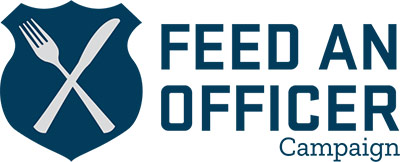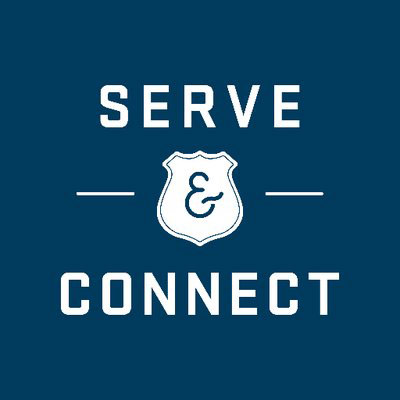Contact Us
To provide feedback on the Community Policing Dispatch, e-mail the editorial board at CPDispatch@usdoj.gov.
To obtain details on COPS Office programs, publications, and resources, contact the COPS Office Response Center at 800-421-6770 or AskCopsRC@usdoj.gov

U.S. Department of Justice
Office of Community Oriented Policing Services
Washington, DC 20530
 After Greg Alia, an officer with South Carolina’s Forest Acres Police Department, was fatally shot in September, 2015, his wife Kassy Alia Ray was determined to memorialize him in a way that would not only reflect the caring officer her husband was, but possibly save others.
After Greg Alia, an officer with South Carolina’s Forest Acres Police Department, was fatally shot in September, 2015, his wife Kassy Alia Ray was determined to memorialize him in a way that would not only reflect the caring officer her husband was, but possibly save others.
Recognizing that the deep distrust between law enforcement and their communities undermined the safety of both groups, Ms. Alia Ray created Heroes in Blue to counter negative depictions of police. Though it raised awareness of the positive things police do, Ms. Alia Ray soon realized that more gains could be made by bringing officers and residents together to build trust and solve public safety problems.
In 2018, Ms. Alia Ray expanded Heroes in Blue into Serve & Connect, a more comprehensive program which continues to recognize the positive actions of officers and honor fallen heroes while also helping police connect with the people they serve through collaborative, community-based activities.
Facilitating collaboration between police and community
 Serve & Connect facilitates activities that strengthen bonds with communities by connecting police departments to sponsors—merchants, food banks, health providers, and others—who can equip them to solve problems. Through these partnerships, the departments are able to organize acts of kindness, including handing out food boxes and delivering coats on cold nights.
Serve & Connect facilitates activities that strengthen bonds with communities by connecting police departments to sponsors—merchants, food banks, health providers, and others—who can equip them to solve problems. Through these partnerships, the departments are able to organize acts of kindness, including handing out food boxes and delivering coats on cold nights.
By collaborating with their sponsors and community members, departments can also organize events that have a wider impact. One example is the Daddy & Me 5K Run that the Springdale Police Department supports in partnership with the Midlands Fatherhood coalition, an organization that helps fathers reconnect with their families. Another example is the COMPASS initiative, in which Serve & Connect is working closely with the Columbia Police Department and various community partners to promote youth empowerment as part of an overarching effort to support in-depth community transformation.
By collaborating in activities like these, communities develop the understanding, trust, and respect they need to collaborate effectively on promoting community safety.
Supporting communities and officers alike
Other programs, such as Feed An Officer, recognize the service of the men and women in blue. This annual “thank you” from restaurants and people in the community provides a special meal to law enforcement personnel. In 2017, the program brought lunches to agencies for 564 officers and provided over $10,000 in restaurant gift cards.
 Perhaps the most important activities are those supporting officers and their families when tragedy strikes. Serve & Connect not only connects them with important services, but also has raised more than $400,000 for the families of those who have died in the line of duty.
Perhaps the most important activities are those supporting officers and their families when tragedy strikes. Serve & Connect not only connects them with important services, but also has raised more than $400,000 for the families of those who have died in the line of duty.
Approximately 50 police departments and seven South Carolina state agencies have participated in Serve & Connect programs, and the response from communities and departments alike has been positive. Says Ms. Alia Ray, “What we hear from the local business, social service agencies, and others is that these activities not only bring us together but make us stronger as a community. And officers say they have established friendships working with people from the neighborhood, and have a better understanding of their challenges.”
As an example, she cites a community event hosted by police and community partners that focused on fun activities that also provided access to healthy food in a low income community. “Officers came in plain clothes and said this allowed them to have personal conversations, even with people they arrested in past, and that they realized they had underestimated the hunger and need for food in the community.”
Empowering police to build mutually beneficial relationships
Ms. Alia Ray emphasizes that Serve & Connect’s role is to empower police departments by providing guidance and support for their outreach efforts. “We don’t just host events for the departments, but connect them to the sponsors and other resources they need. We assist with the coordination but the officers and community partners implement the activities themselves.”
In describing how Serve & Connect responds to police department requests for participation, Ms. Alia Ray says that the staff meets with department leaders to talk about the collaborative approach and determine what their goals are. “We introduce them to our model, then meet with the officers to explore their needs and readiness for collaboration. Though leadership may be onboard, staffing needs may make it difficult for officers to engage, or there may be other challenges to community outreach that must first be understood before moving forward.”
Guidance tailored to the department’s outreach goals
 Recognizing that different department have different goals, Serve & Connect tailors its guidance to meet them. It helps departments that already have partnerships to sustain them, and assists those that are new to collaboration in their efforts to reach internal readiness and gain community acceptance. In all cases, Ms. Alia Ray maintains that it is vital that outreach programs fit their community’s unique needs.
Recognizing that different department have different goals, Serve & Connect tailors its guidance to meet them. It helps departments that already have partnerships to sustain them, and assists those that are new to collaboration in their efforts to reach internal readiness and gain community acceptance. In all cases, Ms. Alia Ray maintains that it is vital that outreach programs fit their community’s unique needs.
“Ask what they want,” she says. “These people often feel that the world doesn’t care about them. And be patient. Getting members of the community actively involved takes time. But sometimes the act of working together is more important than the end result.”
Reflecting on her efforts since her husband’s death and her hopes for the future, Ms. Alia Ray says she wants to end the divisiveness she sees. “I believe that working together leads to improved outcomes in safety and well-being for all. We need an approach to law enforcement that is not police versus community, but one that unites us. We need to see us all as people who need each other.”
Faye Elkins
Senior Technical Writer
For more information:
Intelligence-Led Community Policing, Community Prosecution, and Community Partnerships
Problem-Solving Tips: A Guide to Reducing Crime and Disorder through Problem-Solving Partnerships
Reaching Out to the Private Sector: Building Partnerships and Managing Your Workforce
Subscribe to Email Updates
To sign up for monthly updates or to access your subscriber preferences, please enter your email address in the Subscribe box.






